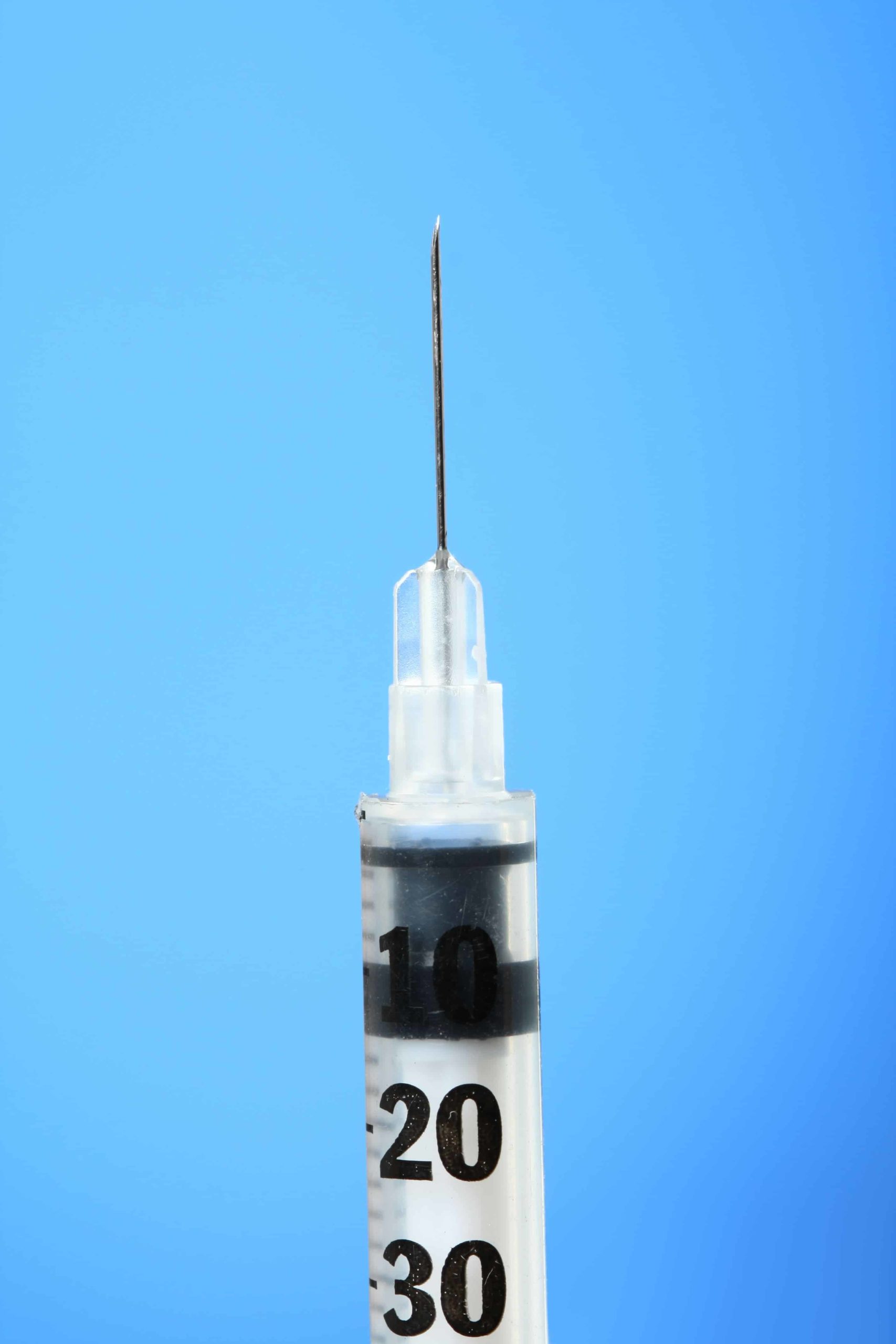
All naturopaths are against vaccinations, right?
- 4 ways your child may not tolerate cow’s dairy: allergy, milk protein sensitivity, cerebral folate deficiency, and lactose intolerance - January 3, 2024
- 5-hydroxytryptophan (5-HTP) and the “feel good” neurotransmitter serotonin - October 4, 2023
- Quercetin supplementation for children: research, safety and efficacy - May 13, 2023
Continuing on the hot-button issues in the field of Complementary and Alternative Medicine (CAM) is that of vaccinations. Once again I’m going out on a bit of a limb with this one, because I’m presenting my personal views and not necessarily those of the profession as a whole. I can, however, share my experience of what I’ve seen most naturopaths advocate…
So all naturopaths are against vaccinations, right? Certainly there are vehement opponents of vaccination amongst naturopathic physicians. Conversely, our community of physicians also has a group who are vocal supporters of rigidly following the CDC schedule. Most naturopathic physicians, especially those who specialize in naturopathic pediatrics, take a third stance, which I call the knowledge-based approach.
The knowledge-based approach is based on educating the parents to make an informed decision on which vaccines to administer, and allows parents to choose the timeline. Naturopathic doctors clearly list the risks of each vaccine, based on actual scientific evidence, not heresay or celebrity endorsement. Physicians also clearly state the risks of each disease, and the potential consequences of not vaccinating. Parents are informed of which age group benefits from each vaccine (meningitis and pertussis are typically more deadly in early infancy), so they are aware of appropriate timing. Parents are given the CDC guidelines and explained the rationale behind the CDC schedule’s timing. Physicians will often point toward alternative vaccine schedules if the parents are so inclined (like Dr. Sears’ vaccine schedule).
The drawbacks to this approach are somewhat obvious – Yes, this explanation takes time! This is another reason why office visits to a naturopathic pediatrician are double or triple the length to a conventional pediatrician. It also requires intelligent and responsible parents to weigh many options and make difficult decisions, especially if they decide on an alternative vaccine schedule.
Sound like too much? Personally, I don’t think so. Most parents are happy to be given hard data. It makes the decision less vague, less based on the nebulous fears of “what if I do this,” or “what if I do that?” Parents, after all, only want what is best for their child.
Check out Vaccines Demystified my online webinar for more information.
So, after highly promoting the “knowledge based approach,” here is my opinion with regards to vaccination:
1. Ignorance is never a valid reason to either vaccinate or not vaccinate your child. Frankly, I’ve been surprised by some of the experiences I’ve had with parents in the clinic. One parent brought in her 6-month girl (who was sick, of course), and when I asked her about the child’s vaccinations she replied “I haven’t decided whether to vaccinate yet.” Yet? Parents should know that there is a window of protection given by certain vaccines, that some cannot be given at all after a certain age, and that some are most necessary in early infancy. Also, vaccines should be planned well in advance, because they cannot be administered when a child is ill.
On the other hand, I believe parents should be informed before they blindly follow a physicians recommendation to use a certain vaccine schedule. Friends, Facebook, and the Internet are a wealth of misinformation that are bound to leave an uninformed parent terrified (whether they vaccinate or not). Parents should also know what ingredients are in each vaccine, and whether the virus is “live” or not. They should also know what to expect, what to do if their child has a bad reaction, and what not to do under normal circumstances (like give Tylenol – but that’s another blog post by itself).
2. All children should have a vaccine plan in place by the age of 2 months. 2 months is when the CDC recommends initiating the vaccine schedule (with the exception of those given at birth). If parents are going to delay vaccinations they should have a schedule completed – in writing – by the age most children begin vaccinations. One copy of the vaccine schedule should be kept at home (for planning and appointment purposes), and another signed copy should be given to the child’s pediatrician. This is for practical and legal reasons – the child’s physician needs to have documentation of any delayed vaccines both to avoid potential lawsuits and to always have record of when the child is due for what vaccine.
The document is also helpful for pediatricians in managing sick kids. Parents who plan to delay or refuse certain vaccines (like pertussis or those for meningitis) need to be aware of the warning signs of those diseases. The child’s physician should educate the parents on what to look for, and to let the parents know that kids who are unvaccinated may need to be taken to urgent care a little earlier than a vaccinated child. This isn’t to scare the parents, but rather to be practical so parents know what to expect. The child’s vaccine schedule is incredibly useful for the physician when managing sick kids – it helps the doctor know what disease the child is likely to have or not have, and when the child may need to be referred to a specialist.
3. Every child should see a naturopathic physician. Just kidding. Picking a pediatrician should be based on many factors, and it is essential for parents to have a doctor they can trust. If you feel that your doctor isn’t giving you the time you deserve – give me a call!
Photo credit: piyaphantawong / FreeDigitalPhotos.net









Rey
November 14, 2012 at 7:10 amIt was a topic of contention in my falimy. My daughter finally got the MMR vaccine at 22 months old. My son will not be getting his anytime soon. The truth is that we do not know what is in these vaccines. It is sad that we only jump up in anger when children are given gardsil, because it has some known side-effects adn could even be considered an immoral way to remedy a sexual revolution problem.What makes us think that these same people who manufacture the birth control pill, morning after, pill and the gardasil injections (which all have been known to cause death and illness)are more careful with the manufacturing of other vaccines that they claim will help us?If at one point the vaccines worked, then I will contest that today, the reason why childeren get sick after the vaccines is that they have probably been altered with other “viruses” or chemicals without our knowledge. That is to say, our childeren are perhaps being used as guinea pigs on a large scale, much like the Govt. does with soldiers who are told to roll up their sleeves like good men and take their shots.If our government can roundup women and sterilize them (as has been discovered in S.C.), then it can surely do much more harm then we are ready to believe. There is money involved, and when that is the case, you and I do not matter that much.Philip James
drkrumbeck
November 14, 2012 at 8:37 amI agree that the financial impact of mass vaccination programs is great. However, I am not a conspiracy theorist when it comes to vaccines. I do not believe that vaccines are manufactured only for profit, or for some large-scale experiment on children. I do believe that well-meaning scientists develop vaccines to prevent diseases in children. However, it is an unfortunate conflict of interest that vaccines are a source of profit.
The fact is we DO know what is in these vaccines – the manufacturers list very clearly the adjuvants and preservatives in vaccines. Most people (lay people and doctors included) do not take the time to read the entire vaccine information sheet that is distributed with the vaccine (this is not the same as the piece of paper given as a hand-out in your doctors office). I have read them. Yes, there are preservatives and adjuvants that are potentially dangerous. This we know. We have data that aluminum affects the neurodevelopment of children. We have data regarding the other preservatives (some are carcinogenic). However, the amount of these preservatives is very low.
The concerning point regarding vaccines is that there is very little research being completed as to the long-term effects of completing the full CDC vaccination schedule. The research that has been done has focused almost exclusively on the link between autism and vaccines – a link that has never been demonstrated in any scientific paper other than Dr. Wakefield’s fraudulent one. As a physician, at this point I believe it is safe to say that vaccines alone do NOT cause autism. There is still a chance that vaccines, combined with other genetic and environmental factors, could be the neurologic “straw that broke the camel’s back” (a tipping point in the immune system leading to autism), but this has not been proven either. I believe we are doing the autistic community injustice by continuing to focus our efforts on vaccinations, when much time and research could be spent in other areas. If parents have noticed a change in their child around the time of vaccination – what else could be going on? Is it the visit to the doctor’s office? The Tylenol given after the vaccine? Exposure to other sick children in the office? Was the vaccine the tipping point? I want answers to these questions.
Please note that I am NOT necessarily advocating vaccinating according to the CDC guidelines, especially for families with children with autism. For these families (and all the families in my practice), we need to have a long conversation about the actual risks of the disease, the actual risks of the vaccine and the actual risks or benefit to society.
Janina
May 3, 2013 at 2:02 pmI agree that autism is a highly complex disease that we do not fully understand. Some evidence suggests it starts in a developing fetus. However, there is scientific papers besides the wakefield report that do establish that there might be some sort of connection to vaccinations and autism, like you stated the straw that broke the camel’s back. However, maybe this is not autism just a brain and neurological damage from a response to vaccinations. I just thought it was important to note that additional studies have been completed on this subject.
There are also numerous studies demonstrating how dangerous the old DTP shot was–however, it was the hard work of parents that changed this not a response from doctors, the government, or vaccine producers. New studies are pointing to the impacts of the sheer number of vaccinations given to children during childhood visits. Funding should be given to researchers to not only document harm but demonstrate safer schedules, dosing, vaccines etc. Instead it seems like their is a desired ignorance about problems associated with vaccinations.
I think vaccine companies are far from completely understanding immunity, vaccines, disease, etc. However, I do not think that is there goal rather they are in a business of making money, and have no risk in the outcomes. Vaccine injury payments are from the government or taxpayers. I think vaccinations could be safer-and parents should not be the only one’s advocating such. I also think the timing and scheduling of vaccinations need to be re-visited. There is evidence of extreme harm and it should be on vaccination companies, scientists, and doctors to reduce this harm–not cover it up or deny some of the health problems children experience after vaccinations. I know my child experienced some impacts–but of course it was just coincidence. The same thing happened to his cousin–but earlier because she received her vaccinations earlier, again a coincidence. Vaccinations are hard on children-they expose children to a disease and harsh additives and it is not a service to deny this but instead to try and work to reduce these impacts and make the overall administration of vaccines safer.
Dr. Erika Krumbeck
May 3, 2013 at 5:38 pmJanina,
Thanks for your input.
I just finished my very very very large vaccine webinar (it is here on the website), and I did not find the studies showing the danger of the DTaP shot (unless you are truly referring to the DTP shot, which is different than the DTaP shot). I pulled about 300 studies of vaccines in preparation for this lecture, so I feel like I would’ve found it.
Though I agree that there is some major concern over vaccines and vaccine safety. Even the Cochrane review stated that safety studies are lacking (for the MMR vaccine). No study has ever been performed (that I could find) for all vaccines on the CDC schedule (only individual vaccines or combination vaccines containing some of the components). Plus the effects of aluminum are concerning.
I have to admit I have changed my mind somewhat after my many hours preparing for this talk.
Muhammad
December 16, 2012 at 1:58 pmFlu vaccines usulaly do contain thimerosal; they are basically the only vaccines that still do. From the CDC website: “Today, all routinely recommended licensed pediatric vaccines that are currently being manufactured for the U.S. market, with the exception of influenza vaccine, contain no thimerosal or only trace amounts.”Some flu vaccines are thimerosal-free, and it seems that thimerosal-free (or trace thimerosal) vaccines are becoming more and more common – but I wouldn’t assume the new H1N1 vaccines would be thimerosal-free.I think vaccinating in schools for something like this is a good idea: since flu is so seasonal, and most people go to the doctor only once a year, if your checkup happens to be at the wrong time of year you can miss the window for getting the vaccine. I would bet many children miss flu vaccines for this reason – how many parents are going to feel it’s worthwhile to do a whole trip to the doctor just for a flu shot?
Dr. Erika Krumbeck
December 18, 2012 at 8:50 amMuhammad,
It is true that most vaccines are thimerosal free, with the exception of the flu vaccine. The flu vaccine in multi-use vials still contains thimerosal. Pregnant women and children are advised to get the flu vaccine in single-use vials which do NOT contain thimerosal. Unfortunately I have heard many reports of the single-use vials being unavailable in typical pharmacies. It is quite easy in most places to get a flu vaccine in a local drugstore without needing to schedule an appointment with your doctor.
All that said, I like to counsel my patients that the flu vaccine is not a cure-all against the seasonal flu. In fact, the efficacy of the seasonal flu vaccine has never been well documented in literature, despite the CDC’s recommendations. The best prevention against the flu is not the vaccine, but rather practicing excellent public health and hygiene – hand washing, wearing masks when sick, covering your cough (into a sleeve or tissue), and staying home when ill.
Grigoriy
October 23, 2013 at 6:17 amHi. I was wondering if there natural vaccines that are without heavy metals?
Dr. Erika Krumbeck
October 23, 2013 at 7:30 amHi Grigorly,
No, there are no “natural” vaccines. The manufacturers put heavy metals (mostly aluminum) in vaccines because it helps stimulate the immune response. If we didn’t have some type of “adjuvant” (immune stimulator) in the vaccine, then it is highly unlikely our bodies would develop an appropriate immune response. Many researchers are calling for the development of new adjuvants, however.
Please see my “Aluminum in vaccines” blog post: https://www.mtwholehealth.com/2013/09/aluminum-in-vaccines
Amanda tomasits
March 29, 2015 at 12:32 amDo you follow a delayed vaccination schedule. I am not even sure you have children. I would like to know what vaccines you give your children . This topic is so confusing at times;I have been to naturopaths and regular doctors and now am just trying to decide where to go from here. My kids have some of their vaccinations.
Dr. Erika Krumbeck
March 31, 2015 at 11:38 amHi Amanda,
I often do alternate vaccine schedules for my patients. I recommend checking out my vaccine webinar: http://udemy.com/vaccines-demystified. I can’t “recommend” a particular schedule, since every child and every family has different risk factors. I highly recommend discussing it with your physicians.
Yes, I do have a daughter, and one more on the way!
– Dr. Erika